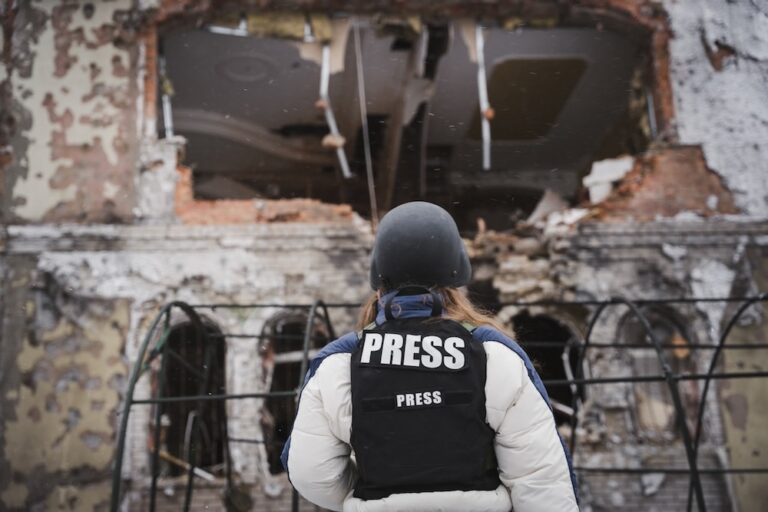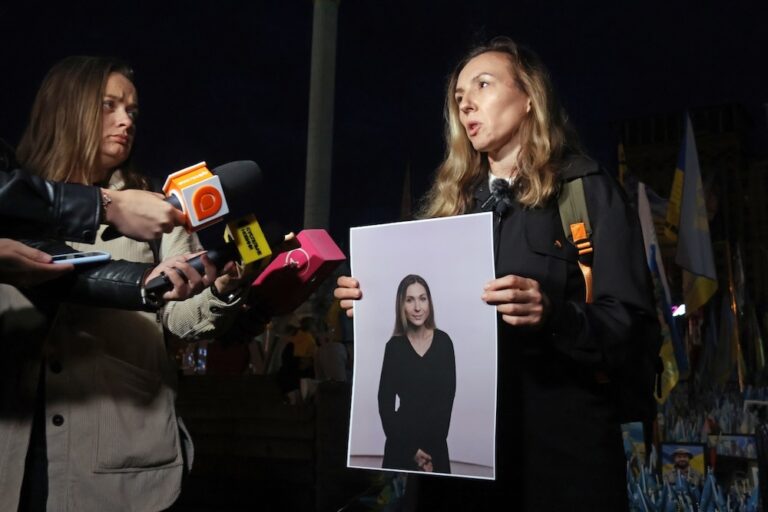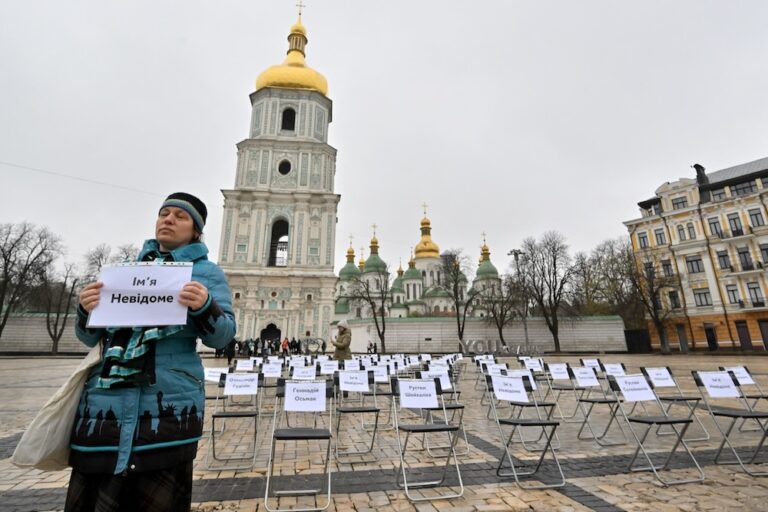(RSF/IFEX) – RSF and the Institute of Mass Information (IMI) have voiced doubts about the independence of the judiciary and have sought assurances of a fair trial for those accused of murdering journalist Igor Alexandrov. The journalist was beaten to death three years ago in July 2001. The prosecutor’s office announced in autumn 2003 that […]
(RSF/IFEX) – RSF and the Institute of Mass Information (IMI) have voiced doubts about the independence of the judiciary and have sought assurances of a fair trial for those accused of murdering journalist Igor Alexandrov. The journalist was beaten to death three years ago in July 2001.
The prosecutor’s office announced in autumn 2003 that it had identified the journalist’s killers.
“Igor Alexandrov was killed because he was investigating corruption and organised crime in the Donetsk region,” said RSF and the IMI in a letter to President Leonid Kuchma and Supreme Court President Vassyl Maliarenko.
“The fact that Prime Minister Viktor Yanukovich and Prosecutor-General Gennadiy Vassiliev have both held high offices in the city, and the serious failings in the investigation and previous trial, do nothing to dispel our fears about the lack of independence of the judiciary in this case.”
“We demand a fair trial that produces irrefutable evidence of the guilt of the journalist’s suspected killers and those who ordered his murder. We will not accept further instances of ‘circumstantial guilt’. Moreover, those who sought to obstruct justice to protect the real perpetrators of the murder should be found and punished,” the two press freedom organisations said.
On 6 July 2004, the Prosecutor General’s Office announced that the prosecutor in charge of the investigation had been accused of “negligence” in the Alexandrov case, but gave no further details.
Former Prosecutor General Sviatoslav Piskun said on 21 September 2003 that Alexandrov’s killers had been arrested. According to Volodymyr Tymoshenko, head of the security services’ anti-corruption and crime department, the journalist was killed because of his investigations into corruption and organised crime in the Donetsk region in eastern Ukraine.
Oleksandr Rybak, a local businessman, and his younger brother, Dmytro Rybak, both members of the “17th zone” gang, are suspected of ordering the killing. The suspected hit-men, Aleksander Onyshko and Ruslan Tursunov, were allegedly paid US$4,000 for killing the journalist. Alexandrov’s colleagues have repeatedly questioned their guilt. The trial date has not been set.
In July 2001, Yuri Verediuk, a homeless man, was arrested and accused of the murder before being acquitted in May 2002. Defence lawyer Bogdan Ferents, who was retained by RSF and the IMI, was able to demonstrate that the evidence against him was insufficient. The charges against the accused man were clearly fabricated and his contradictory “confessions” were obtained under duress. Verediuk died of a heart attack a month after his acquittal.
Ukraine’s Supreme Court ordered the reopening of the investigation on 11 July 2002, and the parliamentary committee investigating the case had its mandate renewed.
Alexandrov, who was general manger of the Slaviansk-based television station TOR, was attacked and beaten on the head with a baseball bat on 3 July 2001. He was taken to hospital with serious head injuries and died on the morning of 7 July.
In 1998, Alexandrov had been sentenced to two years in prison and banned from working as a journalist for five years after being sued by Member of Parliament Olexandr Leshchinsky, whom he had called “the vodka king of the Donbass [industrial area of eastern Ukraine]”. In 2000, the case was dropped after Leshchinsky withdrew his complaint, but Alexandrov persisted in his attempts to get judicial authorities to annul the conviction, admit the prosecution’s error and award him damages (see IFEX alert of 31 July 1998).


